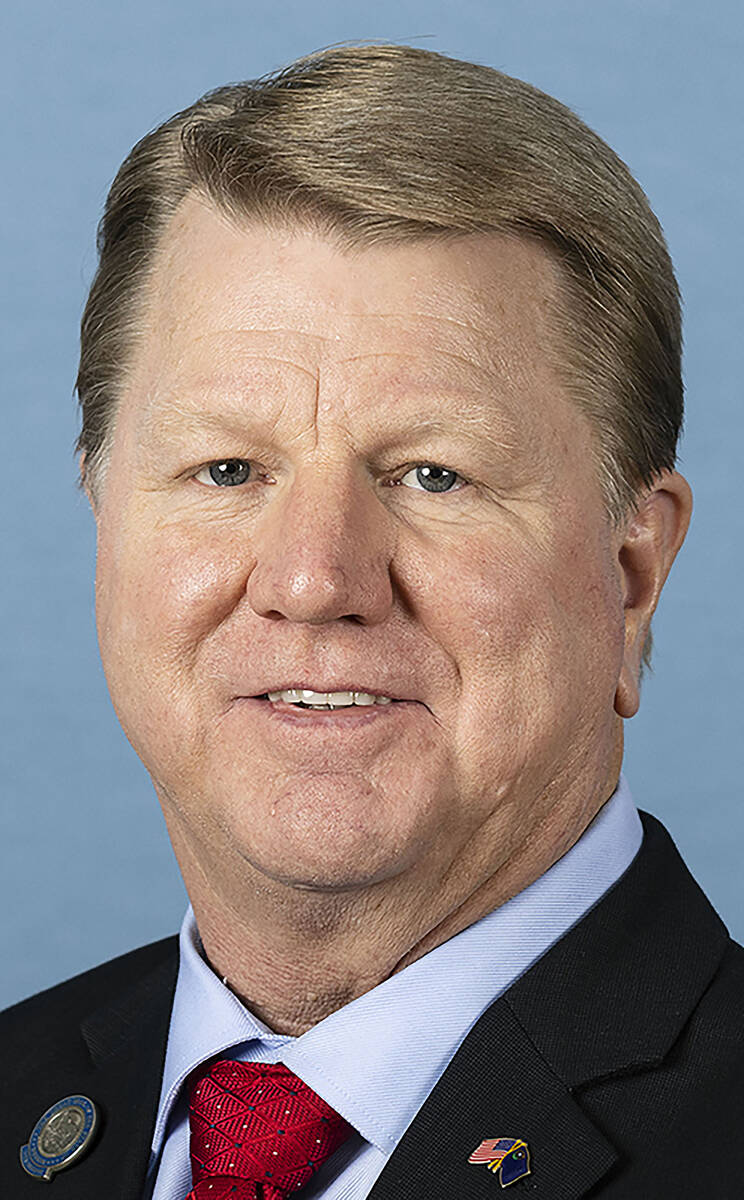Secretary of state candidate’s business history marred by legal settlements
Republican Jim Marchant has painted himself as the ideal choice for secretary of state in part due to his business acumen, although his internet company was sued by multiple parties in the early 2000s, resulting in the company having to pay millions in settlements.
Marchant, according to his campaign site, founded and served as CEO and president of multiple technology companies beginning in 1984, as well as Federation of Internet Service Providers of America. He also founded “one of the first Internet service provider companies in the country” in 1994, although the website does not specify the name of the company and he did not answer the Review-Journal when asked.
One of his companies was Maxcess Inc., which bought telecommunications capacity on networks owned by others and resold that capacity to third parties, according to court records. Maxcess was incorporated in 1999, according to opencorporates.com and operated in multiple states. It is listed as “inactive” in public records. Maxcess was sued by multiple companies in multiple states for a breach of contract among other allegations, according to court records.
In Orange County, Florida, Northpoint Limited Partnership No 3 received more than $4 million in damages from Maxcess in 2002 for breach of agreement/contract. In 2001, Qwest Communications Corporation filed a lawsuit against Maxcess for indebtedness and won $833,395.16. In 2003, Global Motor Inns Inc. filed a lawsuit against Maxcess for breach of contract, and a judge ruled in favor of the plaintiff and awarded them $721,188.03. A few other lawsuits were filed in Orange County, however those were dismissed voluntarily.
‘Share of failures’
Marchant declined requests for an interview, but his campaign spokesperson Rory McShane said in a statement to the Review-Journal that thousands of businesses — including Marchant’s — went out of business when the “dot.com bubble burst,” making no reference to the multiple lawsuits against his company.
“Like any lifetime businessman, Jim Marchant has had his share of successes and his share of failures,” McShane said, “and all along the way never given up and never stopped creating jobs in Nevada and across the country.”
McShane referenced former President Donald Trump calling Marchant a “legendary businessman,” and said Marchant’s opponent Cisco Aguilar is “another lawyer, politician, who has never created a job, has no idea the risk it takes to start a business and couldn’t possibly understand the important role the secretary of state plays in helping Nevada’s business owners.”
In response, Aguilar’s campaign manager Gabriel Di Chiara said in an email that Aguilar spent the past 20 years growing businesses in Las Vegas through building a start-up company, starting a school with a workforce development program and bringing a nonprofit organization called Chicanos Por La Causa to Nevada.
Aguilar is the founding chairman of Blueprint Sports and Entertainment, a marketing agency in Las Vegas that has about 12 team members, not including Aguilar, according to its website.
License canceled
In addition to lawsuits in Orange County, Marchant’s company was cited in Illinois for failure to file an annual report with the Illinois Commerce Commission in 2003. An order from the commission directed Maxcess to appear at the commission’s office to show cause why the commission should not rescind its certificate of service authority, but the company failed to appear. The commission then canceled and revoked its certificate, according to an order from the Illinois Commerce Commission.
As president of the Federation of Internet Service Providers of America for six years in which he lobbied Congress, the Federal Communications Commission and state legislatures to enact cyber laws, he penned a letter to the editor in 2004 to the Tampa Bay Business Journal. He wrote that he was “a former owner of a once thriving small telecommunications business based in Florida” until “deep pockets, massive lobbying power and blatant violations of the 1996 Telecom Act by the Incumbent Local Exchange Carriers” made it impossible for his business to compete. Marchant urged Congress to appeal an “anti-competitive opinion issued by the activist federal appeals court.”
Contact Jessica Hill at jehill@reviewjournal.com. Follow @jess_hillyeah on Twitter.
























